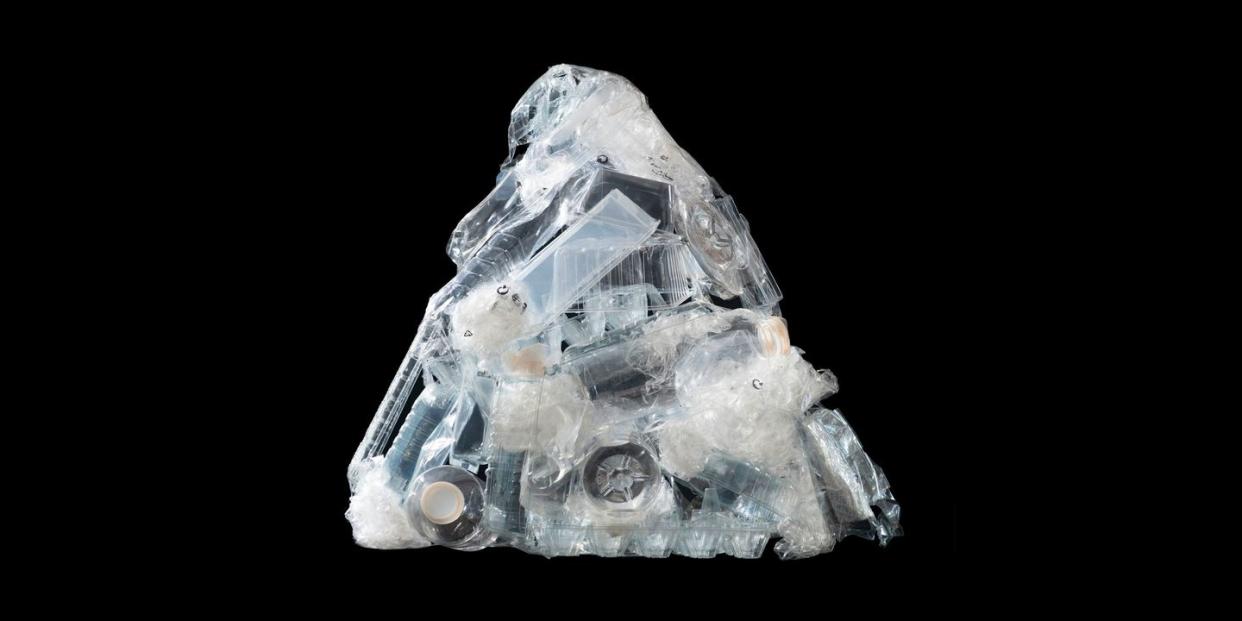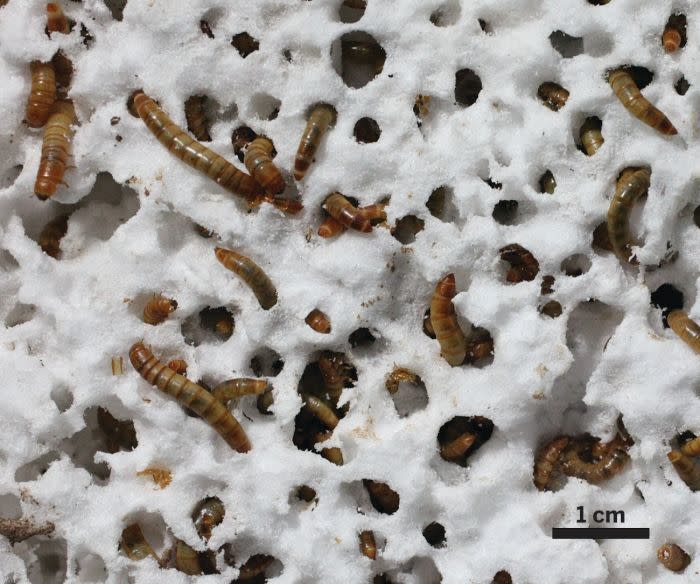A Mutant Enzyme Could Finally Make Recycling Worthwhile

Researchers from the University of Toulouse and Carbios, a sustainable plastics company, have engineered an enzyme that can break down and convert 90 percent of polyethylene terephthalate (PET) plastics back into their original state.
Typically, only 30 percent of PET plastics—which are common to water bottles—are broken down into their origin materials.
Earlier this month, the researchers published their results in the scientific journal Nature.
Recycling is an imperfect process. Not only does a huge percentage of plastic still crop up in landfills—the U.S. Environmental Protection Agency (EPA) says the recycling rate for plastic bottles was just 29.1 percent in 2017—but of the goods that do make it to recycling facilities, workers can only convert about 1/3 of their plastics for reuse.
That's just not good enough.
But now, researchers in France believe they have a solution, and it involves a mutant, plastic-eating enzyme that can recover 90 percent of the plastic in a soda bottle. Today's recycling plants can't accomplish that, as plastics are currently downgraded into lower-strength materials at processing facilities.

This isn't the first time scientists have leaned on polymer biodegradation to restore plastic products to their origin materials; mealworms have been known to chow down on polystyrene foam, and waxworms chew and eat polyethylene film. But it's easily the most effective use of the process so far.
Isabelle Andre, an enzyme engineering expert at the University of Toulouse, and Alain Marty, chief scientific officer for Carbios, a sustainable plastics company, led the new study, building upon prior Japanese research to create their plastic-munching enzyme. They published their work in the scientific journal Nature earlier this month.
In 2012, Japanese scientists discovered an enzyme within a microbe, native to compost heaps, that could break down PET plastics. Known as leaf-branch compost cutinase (LLC), the enzyme cuts bonds between two building blocks in PET plastics, terephthalate, and ethylene glycol. However, LLC—which breaks down the waxy coating on plants' leaves—begins to degrade at 65 degrees Celsius. That's problematic, because it's also the temperature at which PET plastics begin to soften, making it easier for the enzyme to get inside and break links.
So Andre and Marty set out to reengineer a mutant version of the LLC enzyme by studying its crystal structure and identifying amino acids at binding sites for PET's ethylene glycol and terephthalate groups. The researchers also wanted to ensure the enzyme could work at higher temperatures.
Switching out the amino acids for heat-stabilizing ones, the scientists came up with hundreds of possible mutant enzymes, mass-producing them in bacteria to find which were most efficient at breaking critical PET bonds. Eventually, Andre and Marty settled on an enzyme that's 10,000 times more efficient at breaking those bonds than the original LLC enzyme. Even better: it could survive at temperatures of up to 72 degrees Celsius.
The researchers tested their enzyme in a small reactor and found it could degrade 90 percent of a 20-gram PET sample in 10 hours, restoring terephthalate and ethylene glycol building blocks. They used those to create new plastic bottles that were just as strong as the plastic bottles you'd see in the aisles of a grocery store.
Carbios is currently building a demonstration plant for the new technology. It's expected to be up and running in the heart of the French Chemical Valley, near Lyon, sometime in 2021, Marty said in a release.
You Might Also Like

